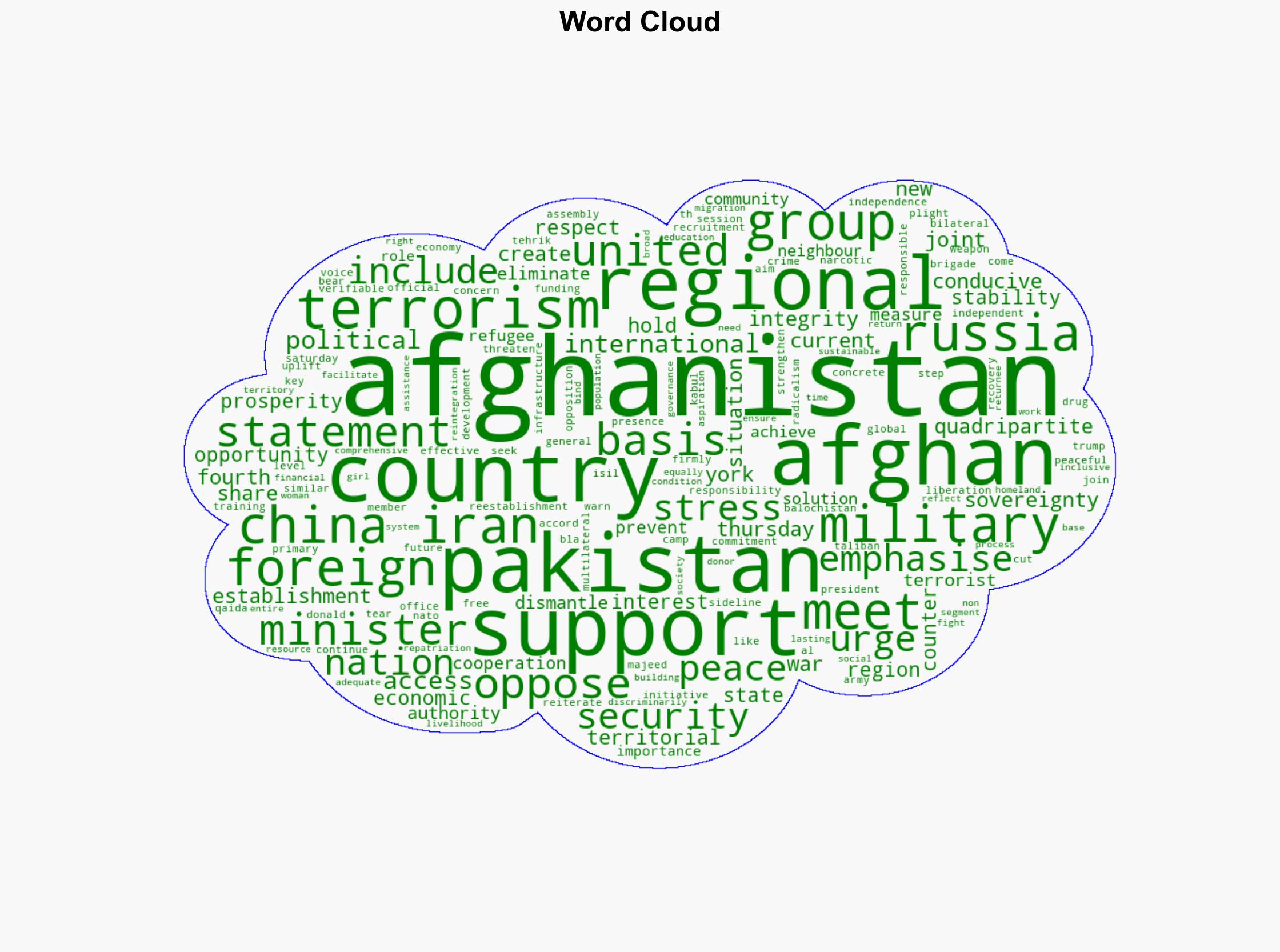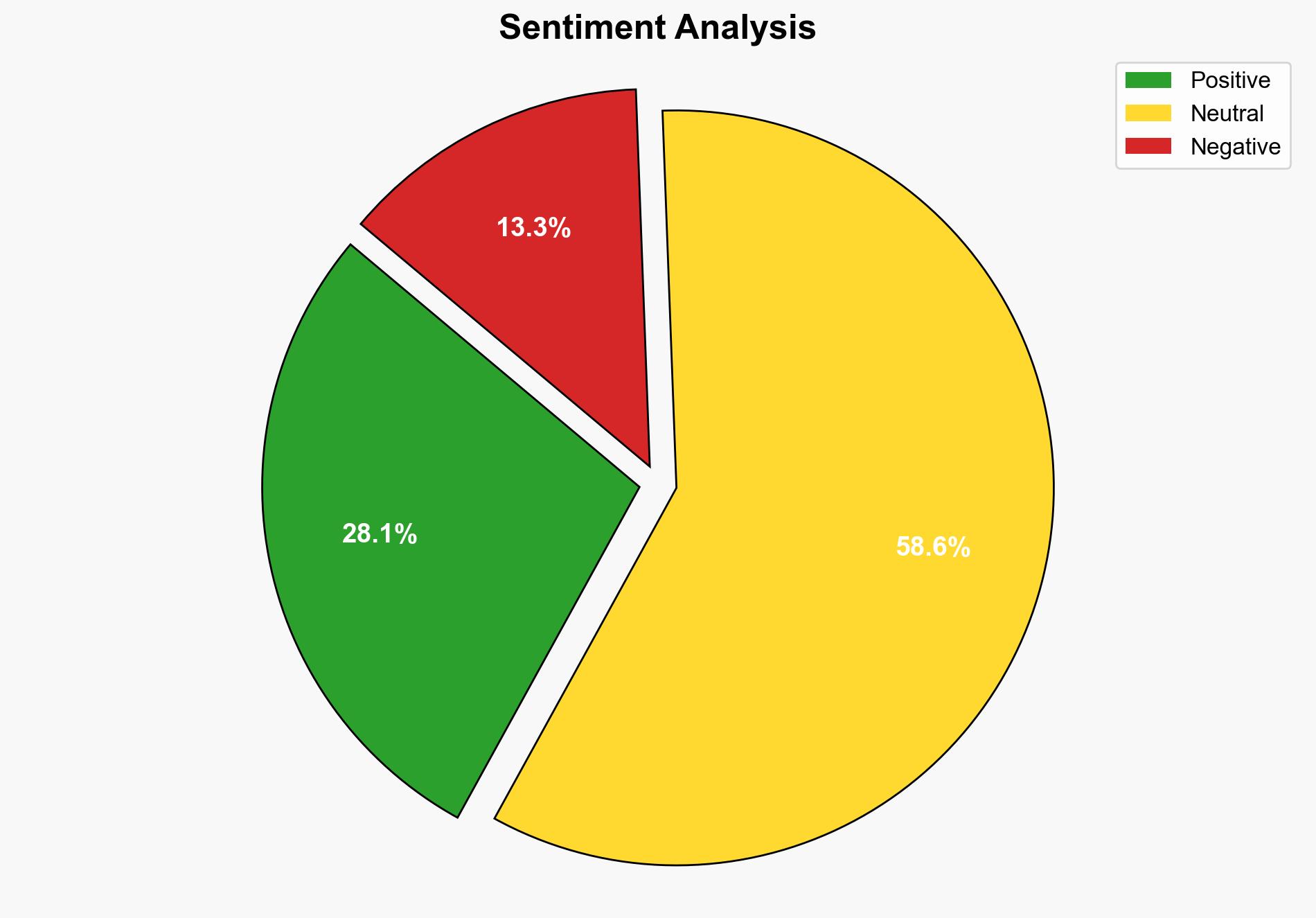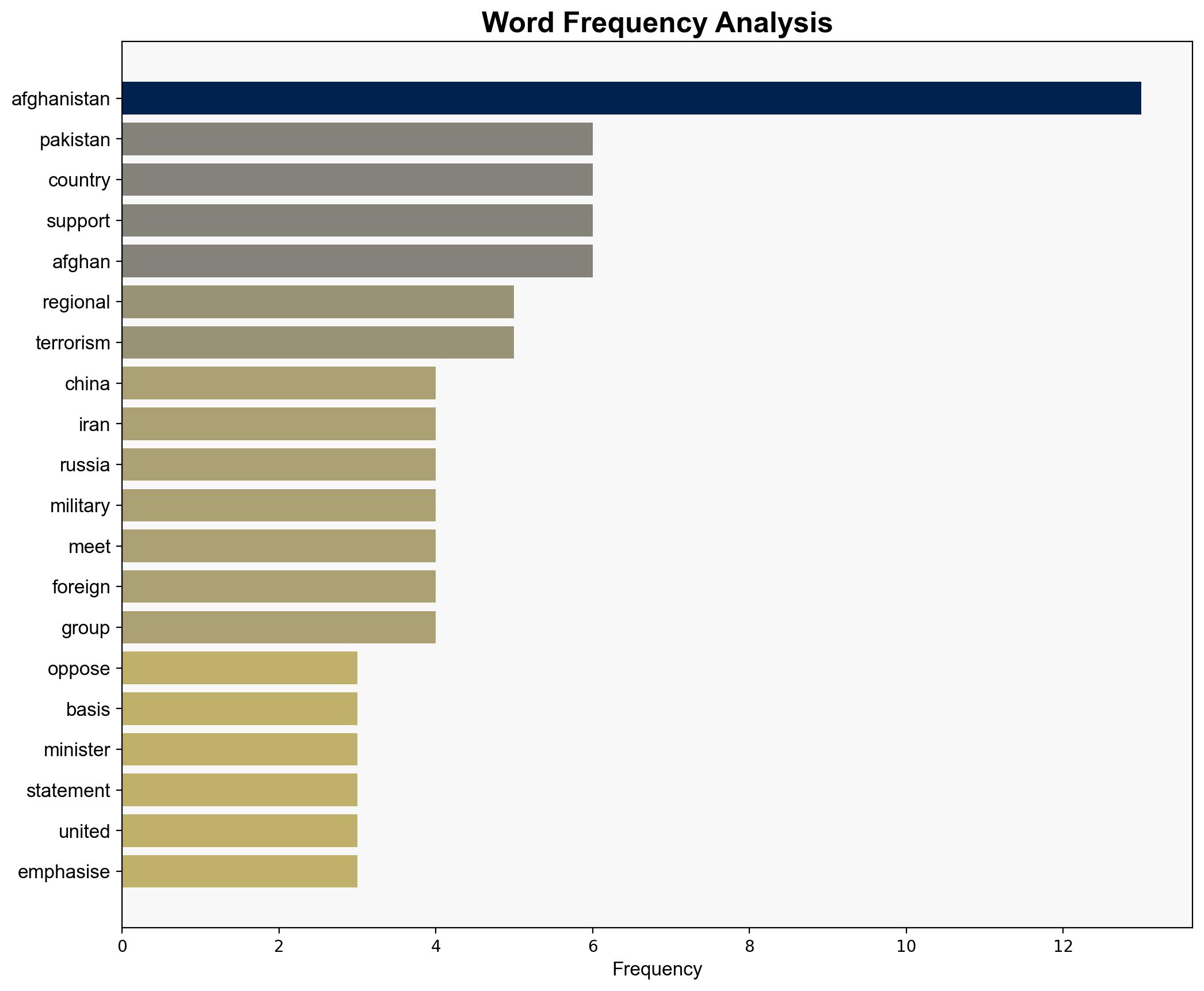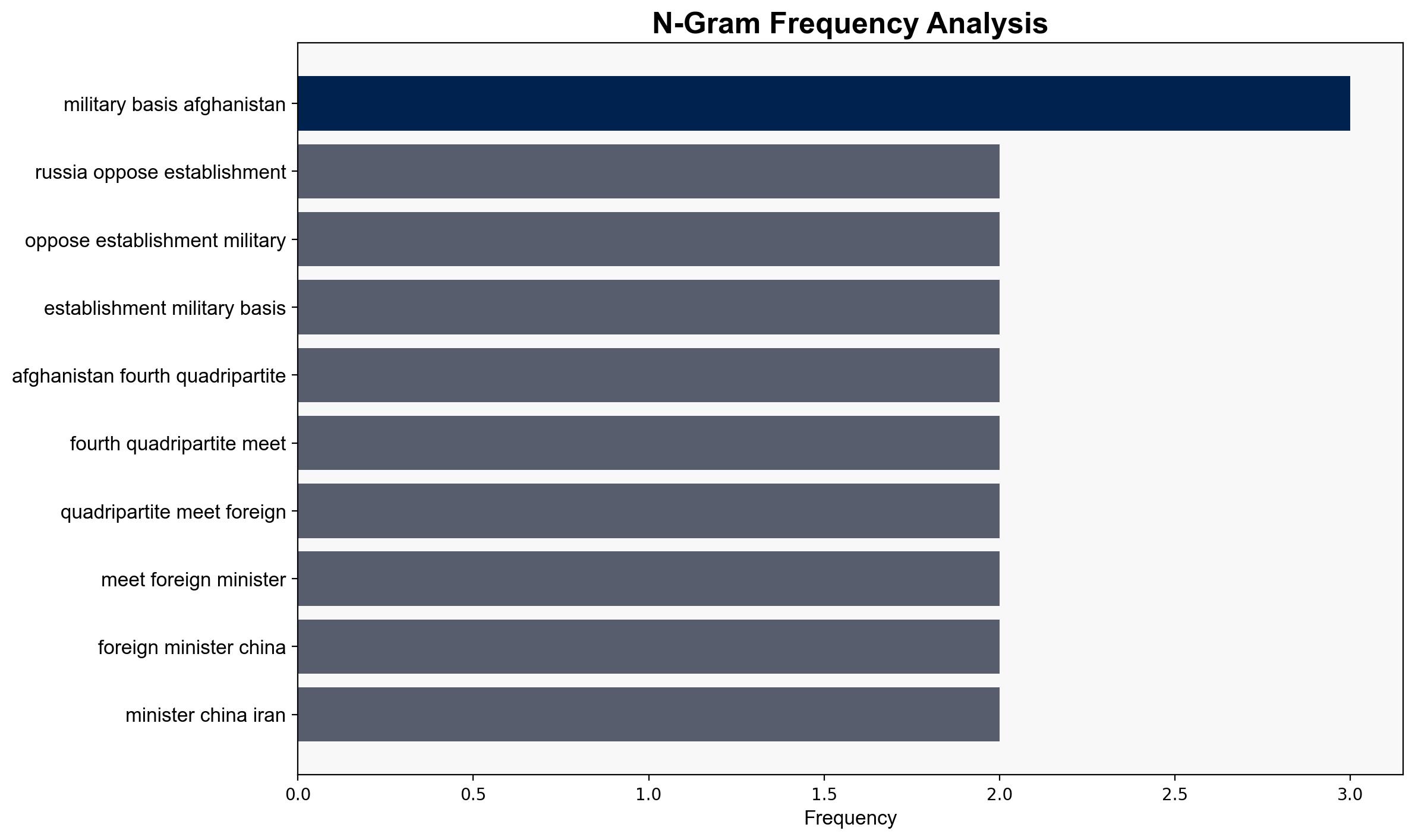Pakistan China Iran Russia oppose establishment of military bases ‘in around’ Afghanistan – The Times of India
Published on: 2025-09-27
Intelligence Report: Pakistan China Iran Russia oppose establishment of military bases ‘in around’ Afghanistan – The Times of India
1. BLUF (Bottom Line Up Front)
The most supported hypothesis is that Pakistan, China, Iran, and Russia’s opposition to military bases in Afghanistan is primarily driven by a desire to limit Western influence and promote regional stability under their terms. Confidence level: Moderate. Recommended action: Engage in diplomatic dialogue to address regional security concerns while exploring alternative security arrangements that respect Afghan sovereignty.
2. Competing Hypotheses
1. **Hypothesis A**: The opposition from Pakistan, China, Iran, and Russia is primarily motivated by a strategic objective to limit Western military influence in the region, thereby increasing their geopolitical leverage and promoting a regional security framework that aligns with their interests.
2. **Hypothesis B**: The opposition is primarily driven by genuine concerns over Afghanistan’s sovereignty and territorial integrity, with the aim of fostering an environment conducive to economic recovery and regional stability, free from foreign military presence.
Using ACH 2.0, Hypothesis A is better supported due to historical patterns of these countries opposing Western military presence and their strategic interest in increasing regional influence.
3. Key Assumptions and Red Flags
– **Assumptions**:
– Hypothesis A assumes that geopolitical strategy outweighs genuine concern for Afghan sovereignty.
– Hypothesis B assumes that the countries’ statements reflect genuine concern for Afghanistan’s stability.
– **Red Flags**:
– Lack of specific alternative security proposals from the opposing countries.
– Potential bias in interpreting the opposition as solely strategic without considering genuine regional security concerns.
4. Implications and Strategic Risks
– **Geopolitical Risks**: Increased tension between Western powers and the opposing countries could lead to a regional arms race or proxy conflicts.
– **Economic Risks**: Instability in Afghanistan may hinder regional economic initiatives, affecting trade and investment.
– **Security Risks**: Failure to establish a cooperative security framework could exacerbate terrorism and narcotics trafficking in the region.
5. Recommendations and Outlook
- Engage in multilateral talks involving all stakeholders to address security concerns and explore non-military solutions.
- Promote confidence-building measures and transparency in regional security initiatives.
- Scenario Projections:
- Best: Successful regional cooperation leads to stability and economic growth.
- Worst: Escalation of tensions results in increased conflict and regional instability.
- Most Likely: Continued diplomatic negotiations with periodic tensions and slow progress towards stability.
6. Key Individuals and Entities
– No specific individuals are mentioned in the source text. Key entities include the governments of Pakistan, China, Iran, and Russia.
7. Thematic Tags
national security threats, regional focus, geopolitical strategy, counter-terrorism





